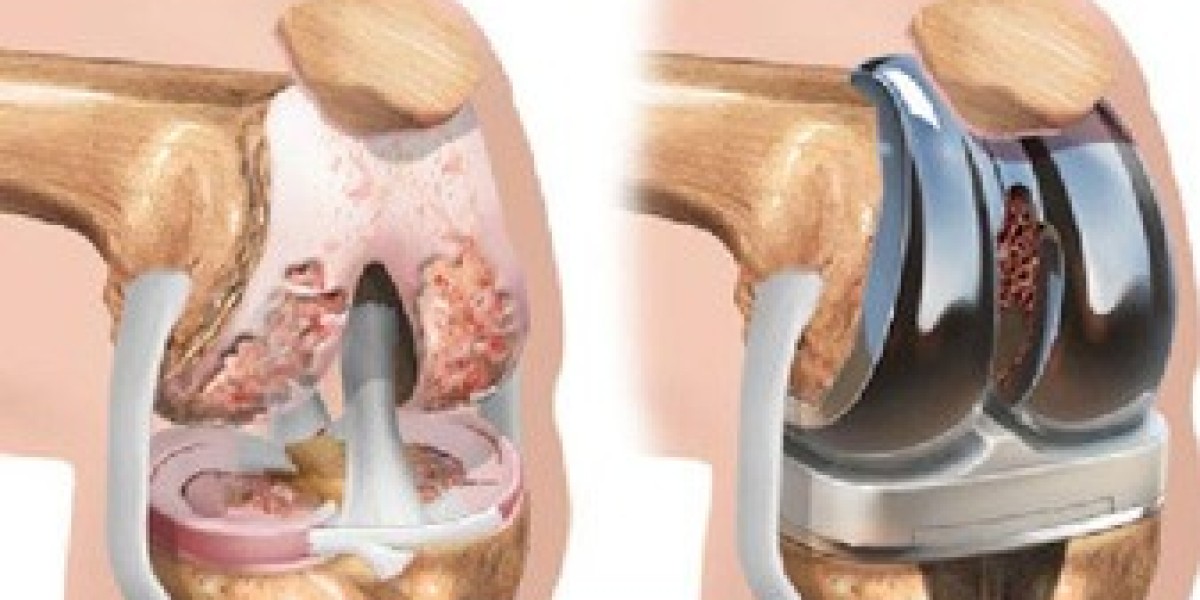Before undergoing knee replacement surgery, there are several important aspects to consider that can help manage expectations, aid in preparation, and contribute to a smoother recovery. Here are some things many patients wish they had known before the procedure:
1. The Recovery Process Takes Time :
Many people are surprised by how long the recovery process can be. While the surgery itself takes a few hours, full recovery can take several months, and even up to a year in some cases. During this time, physical therapy is crucial for regaining strength, flexibility, and mobility in the knee. The first few weeks can be especially challenging, with pain, swelling, and limited mobility, so it's important to have patience and follow the rehabilitation plan closely.
2. Pain Management is Key :
While knee replacement surgery can significantly reduce chronic pain, the recovery period can still involve discomfort. Managing pain is an essential part of recovery, and it’s important to communicate openly with your doctor about your pain levels. You may be prescribed medication, but alternatives like ice packs, elevating the leg, and gentle stretching exercises can help alleviate pain as well.
3. Physical Therapy is Crucial :
Physical therapy is an essential part of the recovery process. Many people underestimate how intensive and long-term rehabilitation will be. The goal is to restore full function, but this requires consistent effort and commitment. A physical therapist will guide you through exercises to strengthen the muscles around the knee and increase range of motion, but you will need to do exercises at home as well to achieve the best results.
4. You Won’t Be Able to Do Everything Immediately :
While the surgery aims to relieve pain and restore functionality, you won’t be able to resume all activities immediately. High-impact exercises like running, jumping, or heavy lifting should be avoided to protect the new knee joint. However, you will be encouraged to engage in low-impact activities such as walking, swimming, or cycling. These can help improve strength and mobility without stressing the joint.
5. Pre-Surgery Preparation is Important :
Preparing for surgery can make the recovery process easier. You may need to make adjustments at home, such as arranging your living space for easier movement or acquiring assistive devices like crutches, walkers, or a raised toilet seat. It’s also helpful to arrange for help during the first few days or weeks after surgery, as getting around will be challenging.
6. You May Need to Lose Weight Before Surgery :
Carrying extra weight can put additional strain on your knee, and losing weight before surgery may improve the outcomes. Many doctors recommend losing a few pounds to help reduce the stress on the knee joint, speed up recovery, and ensure a longer lifespan for the knee replacement.
7. The Surgery Is Not Perfect :
Though knee replacement surgery is generally very successful, it’s important to know that not every patient will experience perfect results. Some people may experience mild discomfort, stiffness, or occasional swelling after the procedure. It's also possible that the prosthetic joint may wear out over time, usually after 15-20 years, depending on your activity level and general health.
8. You Will Need Support :
Having a good support system in place can make a huge difference. Whether it’s family, friends, or a caregiver, having someone to assist with daily tasks, manage appointments, and provide emotional support during your recovery can make the process much easier.
9. Aftercare and Follow-Up Are Essential :
Your recovery will require follow-up visits with your orthopedic surgeon to monitor the healing process and ensure the implant is properly positioned. These checkups are important to address any concerns early, and they will help your surgeon guide you through the recovery phase.
10. The Outcome is Worth the Effort :
While the road to recovery can be challenging, many people find that the outcome of knee replacement surgery is well worth it. Most patients experience significant pain relief, improved mobility, and a return to normal daily activities. Over time, you will likely appreciate the freedom from constant knee pain and enjoy a more active lifestyle.
Conclusion :
knee replacement surgery is a life-changing procedure that can greatly improve mobility and reduce pain, but it requires careful preparation, patience, and a commitment to rehabilitation. Knowing what to expect before surgery can help ensure a smoother experience and better long-term results.



